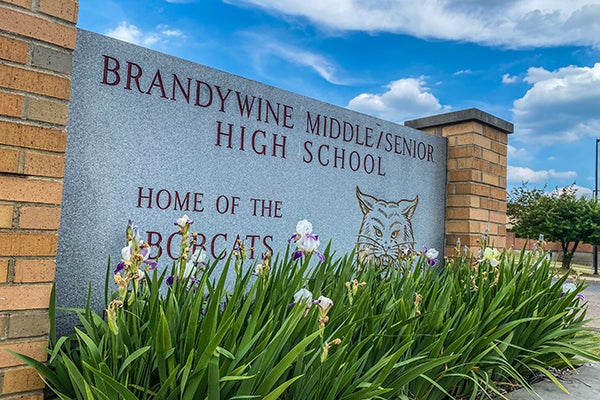Centennial Farms: 100 years in the family
Published 10:08 am Sunday, June 26, 2011
- COLOMA -- This time around the Coloma defense was too much for the Edwardsburg offense.

Farms registered with the Centennial Farm Program receive a sign recognizing their 100-year history. Photo by Terri Gordon
In 1830, William Lemon brought his family from Germany and made southwestern Michigan their home. Twenty-five years later, in 1855, Eli, one of William’s 11 children, bought a 50-acre parcel of rolling hills in what is now Oronoko Township and began to plant fruit trees.
In Bainbridge Township, Peter Krieger, also from Germany, began to tame the 75 acres he purchased from a land speculator. Wooded when he bought it, Krieger cleared the land, and in 1857, built his house and a barn with the timber.
For the mid- to late-nineteenth century, these are common stories — the stories not only of the Lemons and the Kriegers, but of their neighbors, of families throughout the county, and of farms across the state. The family farm was the family’s sustenance, a family business, and a way of life.
As time marched beyond the 19th century, towns and cities experienced a growth spurt. Farms closest to population centers disappeared, as the land was used for stores and other facilities. Some farms were sold by generations wanting different careers. Farms unable to stay competitive failed and disappeared.
It is impossible to know how many family farms have come and gone in the past hundred years, but since 1948, the State of Michigan’s Historical Commission, part of the Department of History, Arts and Libraries, has been registering and keeping count of centennial farms — farms of at least 10 acres that are still “working” and can document “continuous family ownership” for the last 100 years. On July 1, 2008, the Centennial Farm Program became a part of the Historical Society of Michigan, a non-governmental non-profit. More than 6,000 farms are certified in the state of Michigan. There are approximately 150 such Centennial Farms in Berrien County, many of those actually Sesquicentennial Farms — owned 150, or more, years by one family.
The farms of Eli Lemon and Peter Krieger are both Sesquicentennial Farms.
Each generation along the way has faced hardships and uncertainties, and each has risen to the challenge and made their own adaptations in order to survive. The current generations are no exception. The Lemons and the Jollays have opened their farms to the public — as fruit markets and as “u-picks.” Lemon Creek also has a winery, while Jollay Orchards has an extensive picnic area, a petting zoo, a Ferris wheel and hay rides into the orchards.
Jay Jollay, great-great-great-grandson of Peter Krieger, runs Jollay Orchards with his wife, Sarah. He compares Krieger’s farm to the modern one he’s steering into the future.
“Back in that day, the farmers grew more things,” he said. “They were pretty much self-sufficient. They had three or four milking cows that they used for milk and butter. They raised pigs for their meat. They had chickens for laying eggs. They had all these different things. They were cutting and storing hay for winter. But agriculture changed. So, we don’t have the cows or the pigs anymore. The pigs are in the animal farm for people to come to see. So, it’s not the matter of being self-sufficient. We use those things now for education and entertainment. As things change, you hang on to what’s happened in the past, but you have to also realize it’s hard to do things that way anymore. Lasting 150 years says something. I have a strong sense of purpose just to be able to continue that.”
While Lemon Creek Fruit Farm has always grown fruit, the winery is a fairly recent addition. In 1968, the farm started growing the French hybrid grape Vidal. Other varieties followed. They added a winery in 1984. The wines they produce come only from the grapes they grow on the farm. They offer tours and wine tasting.
As a “u-pick” and farm market, Lemon Creek also offers to the public homegrown red raspberries, sweet cherries, peaches, pears and apples as well as plums and nectarines.
Jay Jollay is steering Jollay Orchard in a similar direction.
“We’re doing entertainment farming,” he said, “with hay rides and ‘u-pick’ cherries, peaches and apples. We have a big fall festival in September and October, and a haunted house.”
While some farms, like the Jollays’ and the Lemons’, have opened themselves to the public, many more are out there just quietly farming. Once a person trains their eye to spot the green “Centennial Farm” signs, they will soon notice how many have persisted — even flourished. These centennial farms are strong testaments to a tenacious and ongoing battle for survival — testaments to family commitment and of a love for the land.





